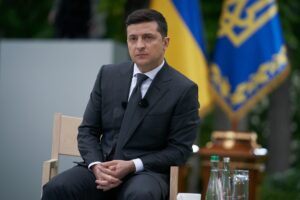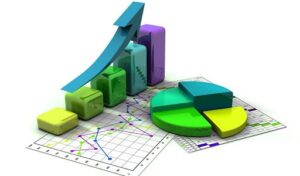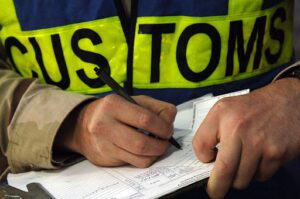
It is planned to create urban sports parks in all regional centers of Ukraine by 2023-2024, President of Ukraine Volodymyr Zelensky said.
“In 2022, such parks will be opened in Lviv, Kropyvnytsky, Kryvy Rih, Dnipro, Kharkiv, Sumy, and in 2023 they are planned to open in many regional centers and several other large cities of Ukraine. After that, in 2023-2024, all regional cities and not only will see such clusters that, it seems to me, our Ukrainian citizens will like them,” Zelensky said while inspecting the urban park on the territory of the National Complex Expocentre of Ukraine (VDNG).
He stressed that this is necessary for the development of physical culture among Ukrainians. “We know that more than 60% of citizens are not yet engaged in physical activity. Because of this, there are certain diseases. I believe that it is with such sports, entertainment and modern ‘magnets’ that we will increase the number of people who must engage in various sports for their own health,” Zelensky added.
PRESIDENT ZELENSKY, REGIONAL CENTERS, URBAN PARKS, URBAN SPORTS PARKS

Prices in the Ukrainian industry in August 2021 increased by 5.4%, while in July – by 2.6%, in June – by 2.4%, in May – by 3.6%, in April – by 1.2%, in March – 1.6%, in February – 7.8%, and in January – 5.2%, the State Statistics Service reported on Friday.
According to it, in annual terms (in relation to the same month last year) in August 2021 prices in industry increased by 46.5%, in July – by 42.2%, in June – by 39.1%, in May – by 33.1%, in April – by 27.8%, in March – by 26.3%, in February – by 26.6%, and in January 2021 – by 17.6%.
Over eight months of 2021, the growth in prices of industrial producers amounted to 32.4% compared to the same period in 2020.
The State Statistics Service clarifies that within Ukraine, prices of industrial producers in August versus July 2021 increased by 8.2%, while for deliveries outside the country they decreased by 4.0%.
According to the statistics service, in the mining industry and quarrying in August this year, compared with the previous month, production fell by 2.2%. The growth in prices in the extraction of coal was 2.3%, in the extraction of crude oil and natural gas – 2.2%, while prices in the extraction of metal ores decreased by 7.4%.
Prices increased for the supply of electricity and gas – by 26.3%, in energy generation – by 19.3%, in production of chemical products – by 2.0%, in production of rubber and plastic products – by 1.6%, in production of investment goods – by 1.4%, in production of coke and petroleum products – by 1.2%, in production of electrical equipment – by 1.2%, durable goods – by 1.1%, in mechanical engineering – by 0.9%, and in production of wood products – by 0.6%. Prices for pharmaceutical products increased by 0.4%.
At the same time, prices fell in sugar production – by 3.3%, in metallurgy – by 3.2%, in production of intermediate consumption goods – by 2.1% and in production of non-durable goods – by 0.3%.
Ratio of fertility and mortality by region in Jan-June 2021

SSC of Ukraine

The solemn signing of the memorandum of cooperation between Yuriy Fedkovych Chernivtsi National University and International European University took place on September 15, 2021.
The signing of the document will ensure the establishment of interaction and fruitful cooperation between the two historically related institutions. And also, it will become the foundation for the establishment of close cooperation of the parties in the development of educational, career guidance and information activities, and will also become a platform for the implementation of individual educational, informational, cultural, artistic, sports and other projects.
It should be noted that President of International European University is Franz Volodymyr von Habsburg-Lothringen – Archduke of Austria, a descendant of Emperor Franz Joseph. The history of Chernivtsi National University began in the Austro-Hungarian Empire, because its founder was Emperor Franz Joseph, the ancestor of Volodymyr Habsburg. Within the framework of the visit, flowers were laid at the monument to Franz Joseph.
The participants in the signing of the memorandum were:
1. Franz Volodymyr von Habsburg-Lothringen
President of International European University
2. Petrishin Roman Ivanovych
Rector of Yuriy Fedkovych Chernivtsi National University
3. Huitor Mykola Mykolayovych
First Deputy Chairman of Chernivtsi Regional Council
4. Tolstoukhov Anatoliy Volodymyrovych
Chairman of the Development Assistance Council of International European University
5. Marusyk Tamara Volodymyrivna
Vice rector for scientific and pedagogical work on the educational process of Chernivtsi National University
6. Kulikov Oleksiy Petrovych
Advisor to the President of International European University on the development of the university
Franz Volodymyr, during his speech, repeatedly mentioned the President of the Pan-European Movement of Austria, Karl von Habsburg, who is directly related to the Blue Shield committee, which deals with the protection of cultural property in the event of armed conflicts and natural disasters. In 2011, at the 35th session of the UNESCO World Heritage Centre committee in Paris, it was decided to include the former Residence of Bukovinian and Dalmatian Metropolitans in the World Heritage List.
During the ceremonial meeting, the descendant of the emperor presented the Museum of Chernivtsi National University with an original designed copy of the congratulatory letter of Franz Joseph on the occasion of the founding of an educational institution in Chernivtsi with his wishes and presented the unique things of Franz Joseph. Among them are the portraits of monarchs with original signatures, royal seals, the cane and the bowl of Franz Joseph.

Ukraine’s real gross domestic product (GDP) in the second quarter of 2021 grew by 5.4% compared to the second quarter of 2020, while falling by 2.2% in the first quarter of this year.
Alfa-Bank (Kyiv) has downgraded the forecast for real GDP growth in Ukraine in 2021 to 3.7% instead of 4.3% in the April forecast and the average annual inflation in 2021 to 9.4% instead of the previously predicted 8.5%.
Oxford Economics has downgraded the forecast for Ukraine’s GDP growth in 2021 to 4% from 4.4% in the July forecast, and the risks of further lockdowns and expectations of tightening fiscal and monetary policy led to a deterioration in the forecast for economic growth in 2022 from 4.2% to 3.5%.
Analysts at Morgan Stanley have downgraded the estimate of Ukraine’s GDP growth in 2021 to 3.4% compared to 4.5%, as previously expected, and predict a 4.2% GDP growth in 2022.
The Kyiv School of Economics (KSE) has worsened its 2021 GDP growth expectations to 3.6% from 4.7% in its April forecast and improved its 2022 GDP growth forecast – 4.4% from 2. 7%, Head of the KSE Center of Macroeconomic Modeling Yuriy Sholomytsky has said.
The deficit of Ukraine’s foreign trade in goods in January-June 2021 narrowed by 12.7% compared to January-June 2020, to $1.327 billion from $1.519 billion, the State Statistics Service reported.
The surplus of Ukraine’s balance of foreign trade in the first half of 2021 fell by 46.3% compared to the first half of last year, to $0.41 billion.
The growth of consumer prices in Ukraine in annual terms in July 2021 accelerated to 10.2% from 9.5% in June, the State Statistics Service has reported.
The deficit of the state budget for 2022 in the bill for the first reading is provided at the level of 3.5% of GDP in accordance with the Budget Declaration for three years, while there is no possibility to revise this indicator for the second reading, Finance Minister of Ukraine Serhiy Marchenko said in interview.
The total public debt of Ukraine in July 2021 increased by 0.48% in U.S. dollars and amounted to $ 92.96 billion, while it decreased by 0.6% in hryvnias, to UAH 2.499 trillion, according to data on the website of the Ministry of Finance.
Industrial production in Ukraine in July 2021 increased by 0.2% compared to July 2020, while in June the growth was 1.1%, in March – 5.4%, and in April – 13%.
Exports of products of the agro-industrial complex of Ukraine decreased by 8.8 p.p., from 44% in January-July 2020 to 35.2% in January-July 2021, while the share of these products in the total imports into the country over the same period – by 0.9 percentage points, to 11.3%, the Ministry of Agrarian Policy and Food reported.
Retail goods turnover in Ukraine in June 2021 year-over-year grew by 13% year-over-year in comparable prices, while in May the figure was 22.7%.
Publisher of “Open4Business”, PhD in Economics, Maksim Urakin

On Tuesday, September 21, at 11.00, the press center of the Interfax-Ukraine news agency will host a roundtable talk entitled “Implementation of customs procedures in accordance with EU practice: what changes may Ukrainian business expect? Practical aspects.” Participants include President of the Ukrainian Chamber of Commerce and Industry Hennadiy Chyzhykov; President of the Ukrainian Exporters Club Yevhenia Lytvynova; international expert of the EU Public Finance Management Support Programe for Ukraine (EU4PFM) on customs issues, former Deputy Chairman of the Customs of the Republic of Lithuania Vytenis Alisauskas; Director of the Department of Customs Policy of the Ministry of Finance of Ukraine Oleksandr Moskalenko; Director of the Department of Implementation of the International Transit System of State Customs Service of Ukraine Serhiy Demchenko; Director of the Department of Customs Audit and Person Registration of the State Customs Service of Ukraine Svitlana Anishchenko; Head of the Directorate for Support of Authorized Economic Operators of the Department for Organization of Customs Control and Customs Clearance of the State Customs Service of Ukraine Andriy Teply; representatives of business associations, media, experts of the Reform Support Team of the Ministry of Finance and State Customs Service. Moderator of the event is its organizer Maksim Urakin. Working languages of the roundtable talk: Ukrainian, Russian, English (8/5a Reitarska Street). The broadcast will be available on the YouTube channel of Interfax-Ukraine. Due to quarantine restrictions, the number of seats in the press center is limited. Admission of journalists requires registration on the spot. Details by phone: (068) 099 1709.